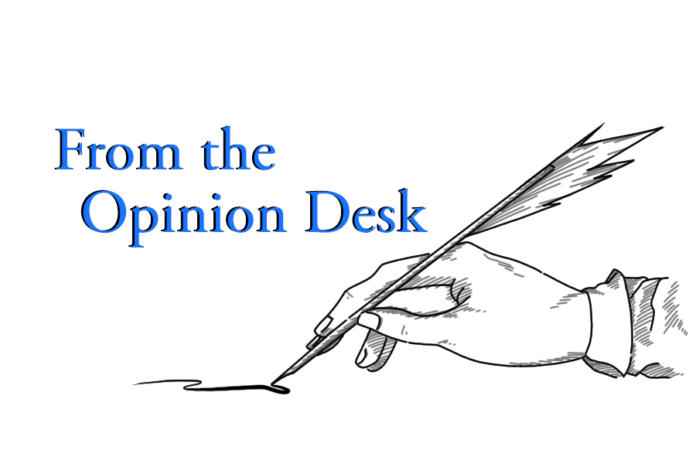Is it ever really fair to pay someone to help you get into college?
By CLAIRE SCHAD — cfschad@ucdavis.edu
In the spring of my third year of high school, as I was about to embark on the journey that is college applications and admissions, the news about the “Operation Varsity Blues” scandal broke. I learned that wealthy elites had been paying to ensure their children gained admission to top universities in the form of bribes, falsified test scores and made-up athletic careers. As a soon-to-be first-generation college student, learning what I could be up against was daunting.
“But at least they got caught,” I thought. This must be a step in the right direction. And while yes, there was some justice served for those who had been cheating, the college admissions system remains immensely flawed and unequal, continuing to heavily favor the wealthy and privileged.
In recent years, the acceptance rates at top colleges and universities have been decreasing, meaning qualified applicants are receiving more rejection letters than ever before. This steady increase in the difficulty of admissions has paved the way for a new industry, available to those willing to front the money: college admissions consultants.
These so-called college admissions experts are hired by families to help their children through the college admissions process. Their scale of work can vary greatly from client to client, but in some of the most involved cases, the consultant is hired while the child is still in middle school. The counselors work closely together with the family to develop the child’s interests and then guide them to opportunities that showcase their interests in a way that will impress top colleges.
I was in my first year of high school when a close friend’s parent suggested that my family hire the college consultant their family was using. It was presented simply: fork up a couple thousand dollars, and the consultant will help develop your child into the best possible applicant they can be.
This specific college consultant helped my friend throughout high school, offering test prep support for the SAT and suggesting specific activities and volunteer experiences that were sure to wow college admissions representatives. When it came time to start the college application process, my friend’s resume was filled to the brim with activities suggested by the admissions consultant, and she had a relatively high SAT score.
In contrast, I had gone through high school personally seeking out activities that I enjoyed. I volunteered at my local animal shelter, joined clubs to spend more time with friends, played the sports I loved and worked with community groups that I felt strongly connected to. As a result, I had a resume that had a little bit of everything on it. It wasn’t fine-tuned to show my dedication and connection to my intended major, which is what some say colleges look for. Despite this, it was representative of me as a person, which is something I am proud of, even if I didn’t realize it at the time.
When it came time to write my college admission essays, I felt wildly unprepared. I read countless articles about which topics make a good college essay and which ruin it. After all of this preparation, I decided to sit down and start writing. And honestly, most of my essays were not great — I didn’t fully understand how to present my ideas in a way that would be interesting to college admissions officers, likely because I was never really taught how to do so.
My friend who used the admissions consultant, on the other hand, had someone by her side as she wrote her essays. They would review them after each draft and provide detailed suggestions on how to improve. If I had used this service, would my essays have been better? There is no way to know for sure, but targeted guidance and suggestions would have likely made a difference in the process. After all, my friends who used these services yielded positive results and gained acceptance to practically all of their desired universities.
Throughout the entire college admissions process, I was aware that multiple of my friends were using college consultant services. However, I was adamant that I wanted to complete all of my applications on my own. Maybe I thought these services were unfair, or maybe my stubborn teenage self just wanted to prove that I could do something on my own. Either way, looking back on it, I am happy to say that I have gotten to where I am today without the help of a paid consultant.
Now that I have matured and am on the cusp of graduation, I can confidently say that college admissions consultants are just another means to providing wealthy students with an advantage in the college admissions process.
So, if in the future you are ever thinking about spending thousands of dollars on a college consulting service for yourself or someone you love, I encourage you to think deeply about the way these services are contributing to the inequity of higher education. Think about how being molded into the “perfect applicant” may limit self-exploration and personal development. Even though the college consulting industry will try to convince you about the necessity of their services, I challenge you to push back and try to figure it out yourself. After all, rejection isn’t really failure, it’s just redirection.
Written by: Claire Schad — cfschad@ucdavis.edu
Disclaimer: The views and opinions expressed by individual columnists belong to the columnists alone and do not necessarily indicate the views and opinions held by The California Aggie.









